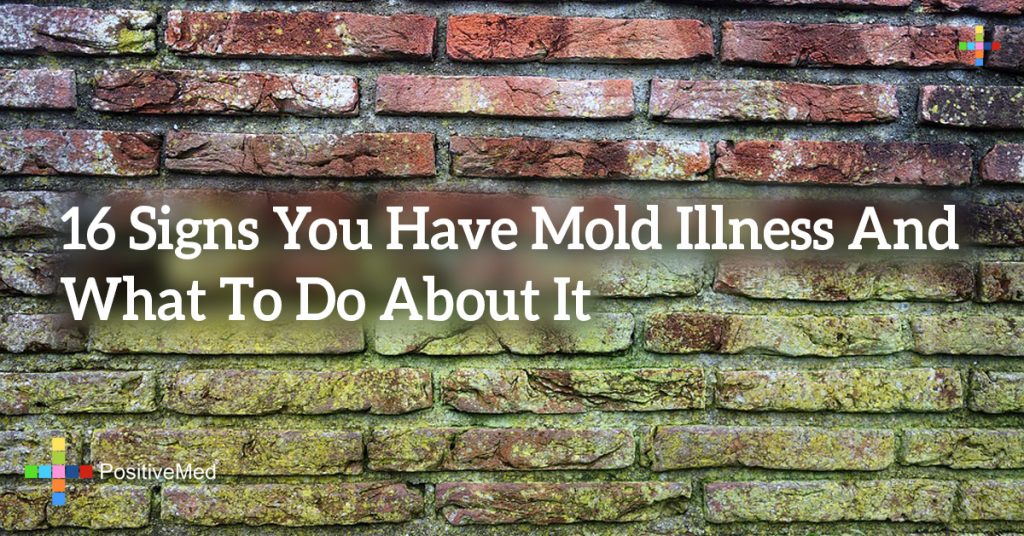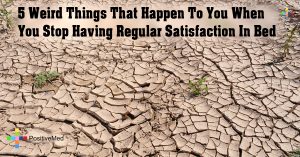
16 Signs You Have Mold Illness And What To Do About It
[nextpage title=”…”]
Molds: What is it? How can people get it?
Moldy homes not just look ugly and unappealing. These black and filament fungi can actually cause mold poisoning. While most people may not be able to recognize the typical moldy smell, they can actually fall sick because of the possible mold poisoning. Molds can detrimentally affect your health. While you will experience many symptoms, you may not be able to cure it with the conventional medicine. Plus, it is difficult to diagnose the mold toxicity too. That’s because most of the mold toxicity symptoms are similar to flu, common cold and fever conditions. Also, some symptoms are nonspecific in the case.

Molds are a type of fungi that grow in filaments and produce microscopic spores. Because these spores can fly away and infect a person, it is important to keep the damp areas clean. Molds always grow in damp areas with humid locations. It can be in between tiles, inside your bathroom or even on your shower curtain. Sometimes, mold can grow in poorly ventilated bathrooms, kitchens, floors and even on the walls. Air system circulates molds easily around your house. Also, these microscopic mold spores can attach to your floors, furniture, carpet and books.
Advertisement:
RELATED ARTICLE: You Should Never Eat These 5 Foods Again if You Have Joint, Muscle or Fibromyalgia Pain!
What causes mold toxicity?
Mold poisoning is a type of biotoxin illness. Medically, the illness is termed as the CIRS or the Chronic Inflammatory Response Syndrome. When a person gets infected with mold spores, his body will respond through an acute internal inflammation.
This illness can cause several symptoms or just a few particular ones. The symptomatic response of mold toxicity can be dramatically different for every individual. A number of people when exposed to the mold spores are not able to make adequate antibody responses. This can cause an illness cause due to mold toxicity. While many of us don’t even get a single inflammatory symptom upon an exposure to the mold spores, many people are susceptible to mold illness due to various reasons.
16 Possible signs of mold toxicity:
[/nextpage] [nextpage title=”…”]
• Brain fog, losing focus and memory problems
• Weakness, body pain and fatigue
• Numbness and tingling in body parts
• Aches and pains in muscle, cramping and joint pain without rheumatoid arthritis
• The typical “ice pick” pain
• Pounding headache
• Redness in eye, blurred vision and light sensitivity
• Persistent nerve pain
• Sinus problems, cold symptoms and cough
• Breathing problem, shortness of breath and air hunger
• Tremors and vertigo
• Abdominal pain, metallic taste, diarrhea, change in appetite and nausea
• Weight gain issues
• Night sweats and excessive thirst
• Increased urination
• Occasional static “shocks”
How do I Treat Mold/mycotoxin Exposure?
A number of times, mold poisoning could go undiagnosed or mistaken for some other health conditions. However, if you find moldy walls or faucets in your home, you should take a few steps and follow these tips to treat mold exposure.
1. Keep your home clean and mold-free. If you find molds in your home, keep away from the contaminated environment.
2. Mold spores can easily get circulated through the air system. Keep your HVAC filter clean and change it every three months. Also, avoid exposure to porous items such as clothing, carpet and rugs that have come in contact with the moldy environment.
3. Keep the molds away by sealing the cracks and cleaning the mold prone areas.
4. You can always use upgraded coconut charcoal, clay and similar binders to bind internal mycotoxins.
5. Talk to your physician about treating both the spore infection and colonizing molds in the body.
6. Consider including some detox supplements in your diet to fight mold infections.
7. Make some changes in your diet by excluding foods with common mycotoxins. Such foods include: cheese, mushroom, certain nuts, grains and alcoholic beverages.
[/nextpage]





